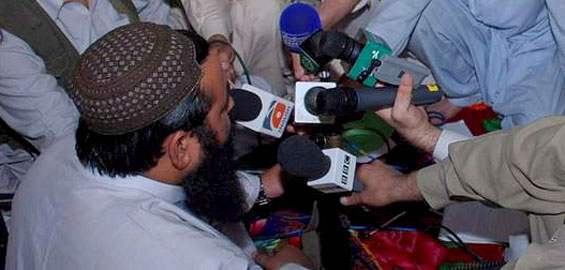Obituary: Baitullah Mehsud
The slain leader of the pro-Taliban group in Pakistan was blamed for numerous attacks.

 |
| Mehsud was reported dead after a US drone hit his house in South Waziristan in August, 2009 [EPA] |
Baitullah Mehsud, the slain leader of Tehrik-e-Taliban Pakistan, or the Pakistani Taliban, was once hailed by a Pakistani general as a “soldier of peace”.
He had been declared “emir” of Tehrik-e-Taliban Pakistan and signed a deal with the government that ushered in a brief lull in fighting in the South Waziristan region along the Afghan border.
But much has changed since that short-lived peace deal in 2005.
Subsequently, intelligence officials blamed Mehsud for the wave of violence that swept across Pakistan after the military stormed Islamabad’s Red Mosque in July 2007.
However, he really gained wider notoriety after the Pakistani government of Pervez Musharraf, the former president, accused him of being behind the assassination of Benazir Bhutto, a former prime minister, in December 2007.
Bhutto had said on her return from exile in October that she had been warned that the Pakistani Taliban was one of several groups planning to send suicide bombers to kill her.
Mehsud has denied any role in the killing, but has admitted to dozens of other attacks, including a recent one on a police academy in the eastern city of Lahore.
Taliban fighter
Mehsud was born in the early 1970s near the town of Bannu in North West Frontier Province, some distance away from his family’s tribal base in South Waziristan.
He later moved to the village of Shaga in South Waziristan where he is said to have built a home.
Mehsud rose to lead the Pakistani Taliban after fighting for its Afghan namesake in the 1990s.
Intelligence officials say that the Pakistani Taliban is actually a loose alliance of a number of groups fighting for a stricter interpretation of the sharia, or Islamic law, in Pakistan’s northwest.
It has frequently targeted symbols of Islamabad’s authority over the region, such as the military, police and government officials.
Its preoccupation with local issues reportedly led Mullah Omar, the Afghan Taliban leader, publicly supported by Mehsud, to “sack” the Pakistani as leader of Tehrik-e-Taliban Pakistan.
Military attacks
Although he kept his position – he had not been appointed by Mullah Omar – the incident highlighted the Afghan Taliban’s frustration with Mehsud’s focus on battling the Pakistani military.
But the US says that his fighters cross the border into Afghanistan to launch attacks on US and Nato-led forces, while he has also been accused of attacking supply convoys heading towards the border.
Mehsud himself said an attack on a police academy in Lahore on March 30, 2009, was in retaliation for US drone strikes in Pakistan’s semi-autonomous tribal areas.
He reached an agreement with the leaders of other groups fighting the government in northwest Pakistan to work together as the Ittehad-e-Shura-e-Mujahidin, or Union of the Consultative Council of Mujahidin.
“If Pakistan, Russia, Nato and America can join hands, then why can’t we?” he said.
“We will continue our activities in Pakistan as well as in Afghanistan.”
Mehsud even suggested that he could expand his attacks further afield in response to a $5m reward offered by the US for information leading to his location or arrest.
“They have threatened me. I will be lucky if I achieve martyrdom,” he told the Reuters news agency on March 31, 2009.
“Soon we will launch an attack in Washington and the White House that will amaze everyone in the world. We will not take revenge against the Americans in Pakistan, we will take revenge in Washington and the White House.”
Mehsud was initially reported dead after a missile fired by a US drone hit his house in the Zangar area of South Waziristan on August 5, 2009, but it was not until later that month that the Tehrik-e-Taliban Pakistan acknowledged his death.